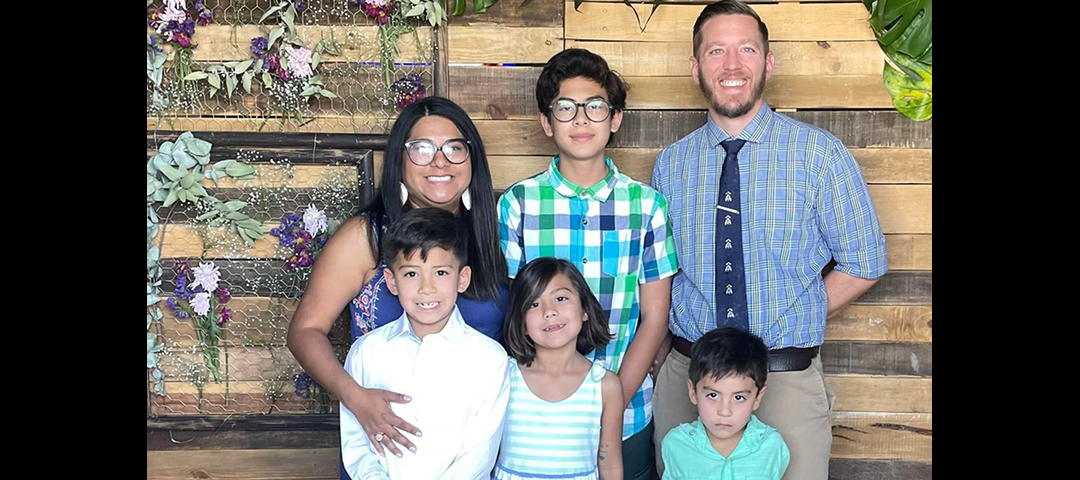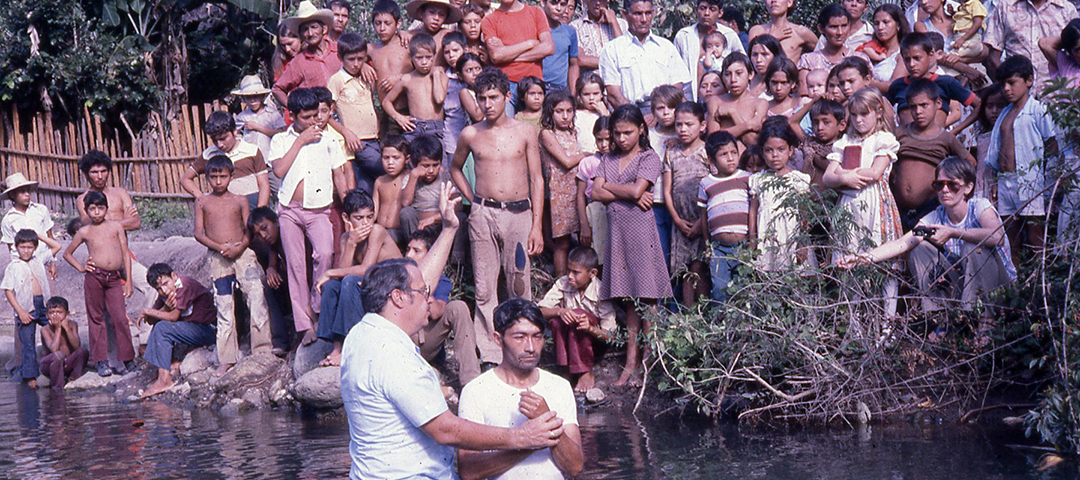
Gospel Message in a Bottle
May 9, 2023
Delivering Christmas Shoeboxes, Receiving a Lasting Blessing
May 23, 2023By Holly Meriweather
Brother Bobby Bowman went into the Navy on December 17, 1954, at the age of 19. The draft was still in effect in America, but Bowman enlisted voluntarily, with the plan to eventually have a career in medicine. Serving in the medical corps was the best way to receive that medical training. During his military service, Bowman says he felt God calling him to serve in ministry and continued to pursue his calling as much as he could after he and his wife Ruth were married.
Bobby and Ruth grew up in east Arkansas not far from each other and met at County Line Baptist Church in Marvel, Arkansas, just before he enlisted. So dating meant “pen and ink” correspondence. When they decided to marry, he had no time off, so Ruth rode on a bus to California, and then they married in Reno, Nevada.
Being a military family was not easy. As a physician’s assistant in the Navy, he worked with and treated fellow soldiers, veterans, and others during his often lengthy assignments, the longest of which was thirteen months. Since Ruth and the children–Gary, Belinda, and Lisa, at the time–could not join Bobby overseas, he recorded messages on tape and sent them to his family. His last assignments were in California, where he served in a mission church, then Vietnam.
Bowman retired from the Navy in 1969, then served at a church in Tennessee and two churches in Florida. He knew it was time to answer the call to missions, specifically Central America. So in 1976, he, Ruth, and Lisa went to Honduras to serve as missionaries. Their two older children were grown and gone, but daughter Lisa joined them in Honduras for her last two years of high school then returned to the States. Tommy Bowman became part of their family when a pregnant young Honduran lady asked the Bowmans to adopt her child because she knew she couldn’t provide for him.
At the beginning of their ministry there was some brief hostility to their presence. Bowman recalls that during church services in San Marcos, people threw rocks and other items at them, but they just ignored it. Resistance also came from the Catholic church until they found out the Bowmans had a medical clinic, which was a pressing need and hard to come by. Surprisingly, some of the people who gave them the most trouble ended up helping them build a church!
Offering quality medical care–something Americans take for granted–was vital to the people they served, so he and his ministry leaders often loaded up medicine in the back of a truck and drove around with a loud speaker offering to give out medicine and examine the sick. Again, standing in that line waiting for help were the same people who threw rocks at them just days before. In fact, when Bowman came back to the States to have back surgery, the Catholic church had nine days of mass to pray for Brother Bowman’s surgery and recovery.
The concept of Jesus and free salvation was hard for the people to accept. But despite their long-held Catholic beliefs, he and his leaders led them to the Lord so they could experience grace. Discipleship after their conversion was also very important. Brother Bobby had a discipleship class for new converts for a period of time after each evening service.
Bowman says that at the time there were no Baptist churches in Honduras, and in their twenty years on the field, they planted nine of them. He is still in contact with leaders there. The first church was in Calpulos, which began underneath a tent, and in addition to the medical clinic, they established an orphanage and a Bible institute. These mission-minded churches are still thriving to this day, and when someone surrenders to the ministry, they immediately look for a place to start a mission, such as a school or any structure that is available. Once a church is established, they find another location to plant a church.
After the Bowmans’ return to the U.S. in 1996, Bro. Bobby established Baptist Medical Missions International (BMMI), which offers physical and spiritual healing around the world through coordinated medical teams providing health care and sharing Christ. BMA missionaries and church planters set up evangelism stations in their communities to reach the sick and wounded then share with them the message of hope as they’re being treated. These new relationships help plant churches and make disciples. They come to receive healthcare but leave with the gospel.
Bobby says of his missionary legacy, “If you’re there in service for God, you need to be doing his service. Be totally involved in it; there’s no partial commitment. There has to be that up-front commitment to the Lord. If you devote yourself to that, you’ll be successful because God will see that you are. “For Ruth and I, if we are to be recognized for the success of the ministry, it’s all because we were willing to follow the Lord wherever he led us.”

